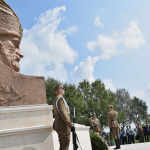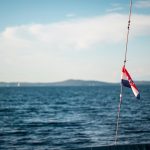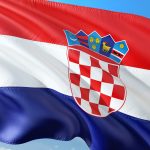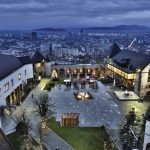ZAGREB, January 17, 2019 – Croatia and Turkey are committed to increasing their trade to a billion dollars annually, Turkish President Recep Tayyip Erdogan and his visiting Croatian counterpart Kolinda Grabar Kitarović said in Ankara on Wednesday.
Speaking to the press after two-hour talks at the end of the Croatian president’s day-long return visit, Erdogan said that they mostly share similar opinions in regional and international affairs. We will intensify our efforts to increase mutual investments, said Erdogan in his comment on the meeting which focused on economic matters.
In 2017, bilateral trade totalled 531 million dollars, and Erdogan expected the trade to have increased to some 600 million dollars in 2018.
The Croatian government recalled that the Croatian-Turkish economic forum which was held in April 2016 had generated huge interest in the two countries’ business communities.
The two presidents pushed for closer cooperation in the energy and transport sectors.
Grabar-Kitarović underscored that many Croatian companies had been awarded halal certificates. She expressed satisfaction with continued high-level cooperation between the two countries, considering Turkey’s global importance.
Croatia is a staunch advocate of Turkey’s European Union membership bid, Erdogan recalled. He expects the strengthening of pertaining activities during Croatia’s presidency of the EU in the first half of 2020. Turkey and Croatia opened accession talks with Brussels on the same day, however, Ankara-Brussels talks are proceeding slowly and are currently at a standstill.
Grabar-Kitarović described Turkey as a membership candidate and key partner of the European Union. She pointed out Turkey’s key role in coping with the migrant crisis. Turkey is an essential partner in curbing illegal migration and in fighting terrorism, she said.
Before the two presidents’ meeting, the two countries signed a set of agreements on cooperation in culture and arts and one regulating the construction of an Islamic centre in the Croatian town of Sisak. “Islam is an irreplaceable part of the spiritual and religious mosaic of the Croatian society,” the Croatian president told the press conference.
As members of NATO and sharing the interest in developments in Southeast Europe, Croatia and Turkey are perceived as allies, and the two presidents also commented on the situation in Bosnia and Herzegovina. Croatia, Bosnia and Herzegovina and Turkey have held seven trilateral meetings since 2010, and the last ones were organised on the margins of the UN General Assembly meetings in 2016 and 2017.
Erdogan and Grabar-Kitarović said they were committed to revitalising trilateral meetings in a bid to help improve the reform processes in Bosnia and Herzegovina. The trilateral mechanism is important, although we have neglected it, Erdogan admitted.
Asked about his opinion on the election of Željko Komšić as the Croat member of Bosnia’s presidency despite the fact that his contender won more votes from the Croatian electorate, Erdogan said that elections were an expression of the will of voters and that he could not say how many voters of Bosniak origin had cast their ballots for Komšić, whom Bosnia and Herzegovina Croats do not accept as their legitimate representative. It is our aim to reach a compromise on the basis of this result, the Turkish president said.
He admitted that the Dayton peace agreement, which ended the 1992-1995 war in Bosnia and Herzegovina, were good then, but that it needed to be changed. The Dayton agreement cannot bring progress any longer, Erdogan said, adding that he wanted a strong Bosnia and Herzegovina as a country of all its peoples.
Grabar-Kitarović said she could agree with a remark from the press about creeping changes of the Dayton agreement. Croatia will insist on dialogue, she said, adding that Zagreb insists on the implementation of the Bosnian Constitutional Court ruling on election legislation changes. All three peoples should be ensured a democratic right to be able to elect their respective legitimate representatives, she said.
President Grabar-Kitarović began her state visit by laying a wreath at the tomb of Mustafa Kemal Ataturk.
According to a press release from her office, “with the Speaker of the Grand National Assembly of Turkey Binali Yildirim President Grabar-Kitarović discussed parliamentary cooperation and the Turkish-Croatian Friendship Group, which was formed in the Turkish Parliament on 8 November 2018.”
“Furthermore, they exchanged views on current events in the Croatian and Turkish neighbourhood and on the state of affairs in South East Europe, which is an interest both countries share with regard to preserving stability and stimulating progress.”
More news on the relations between Croatia and Turkey can be found in the Politics section.







